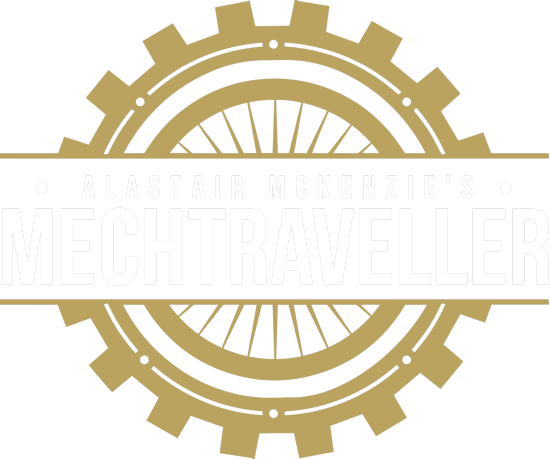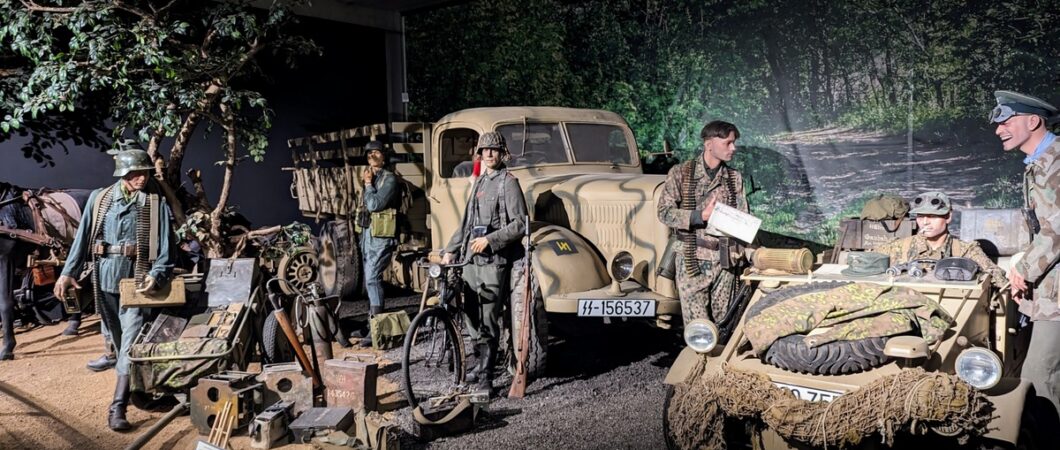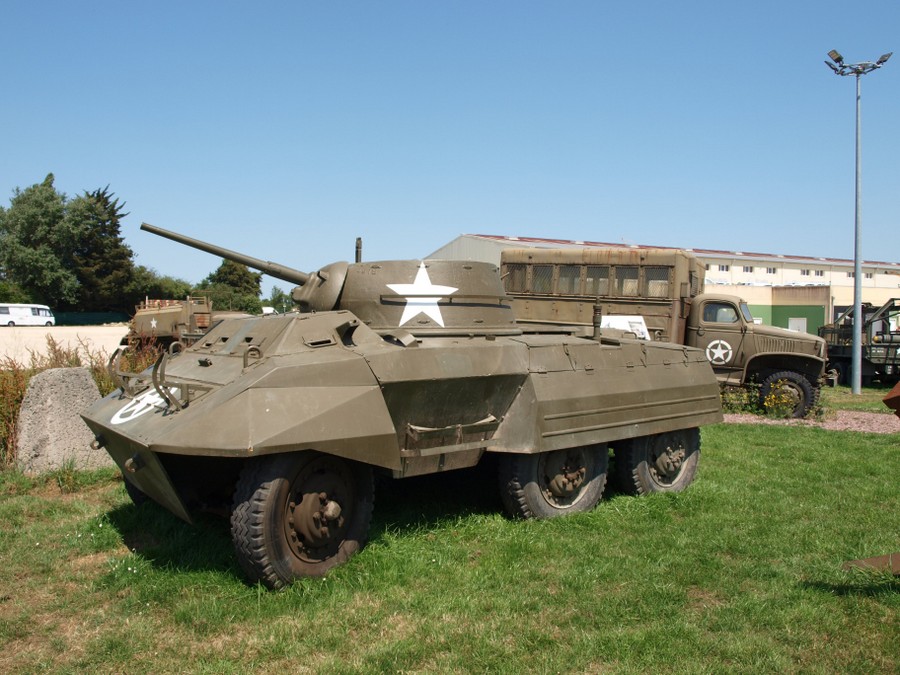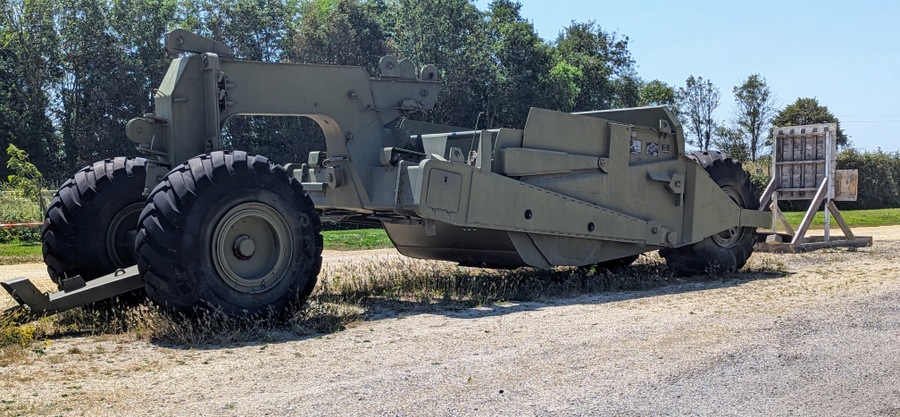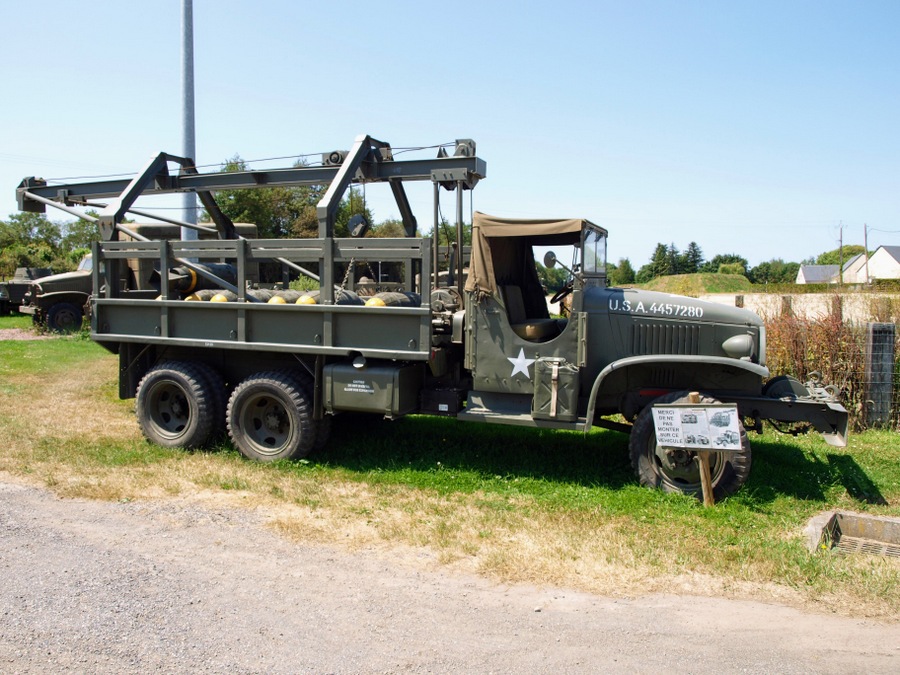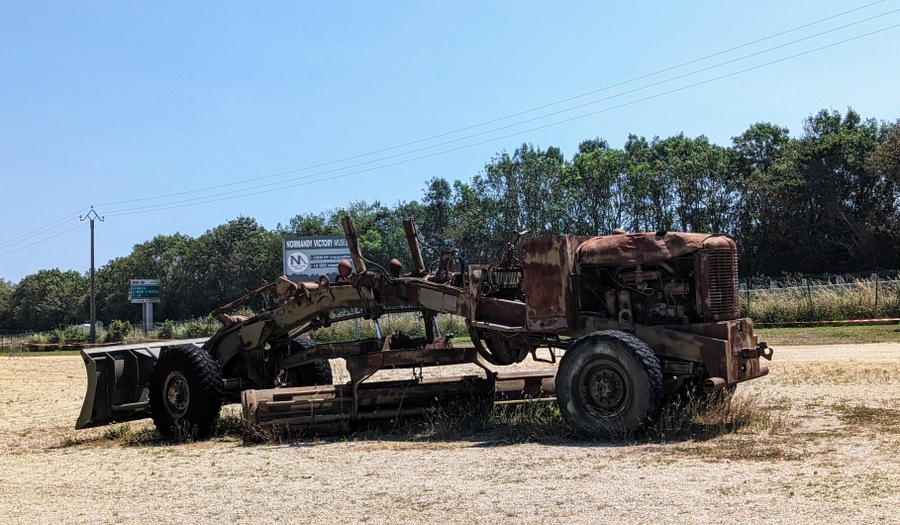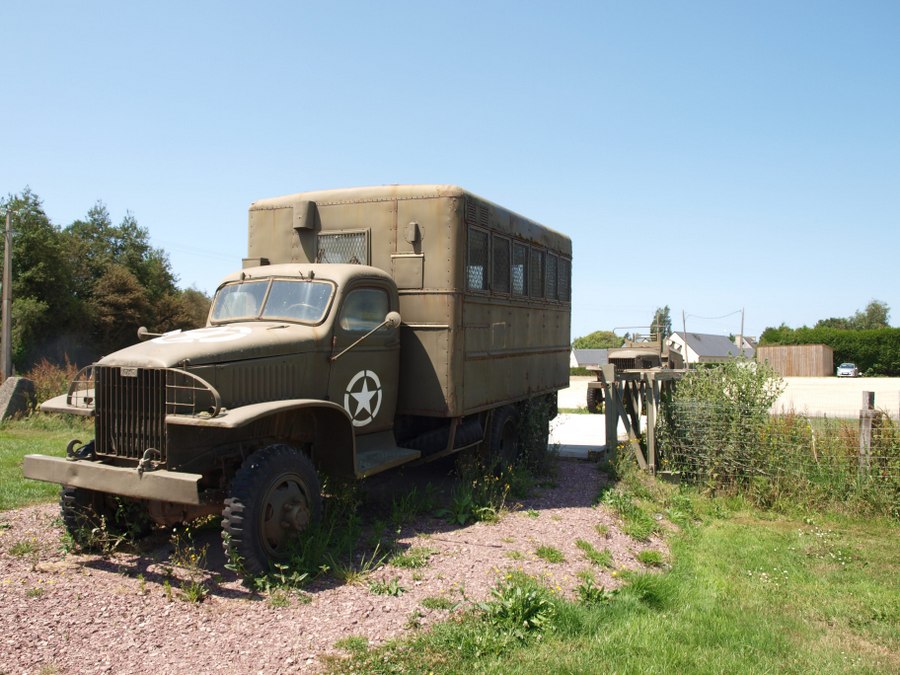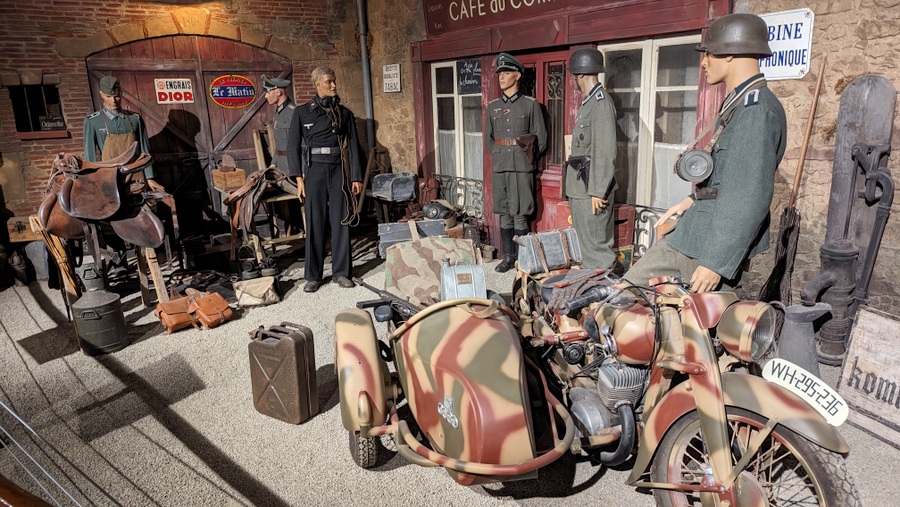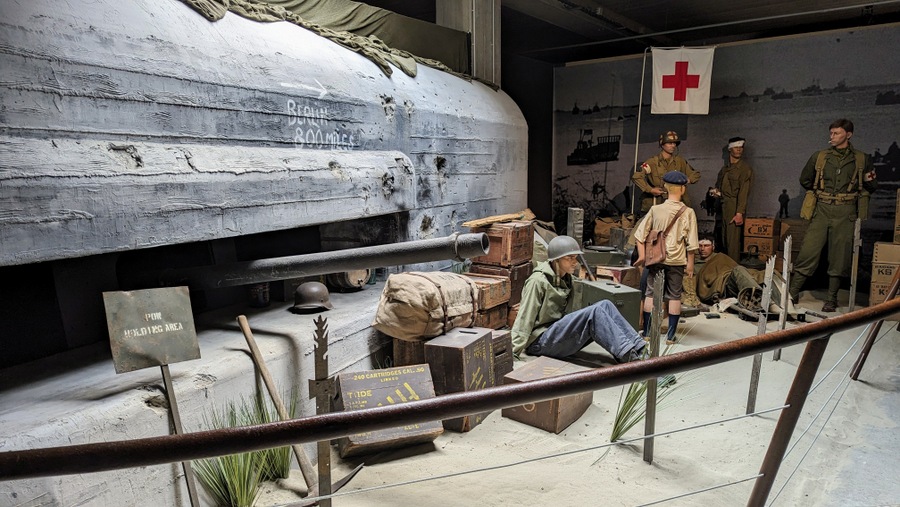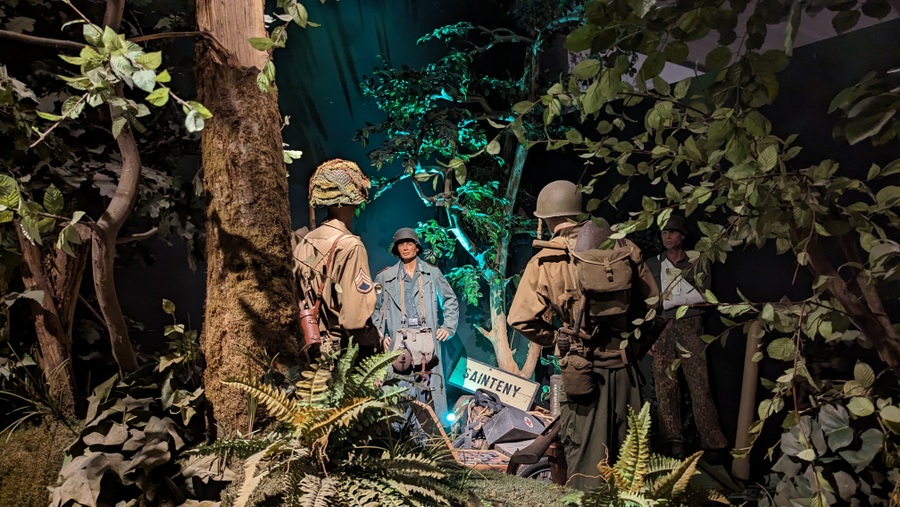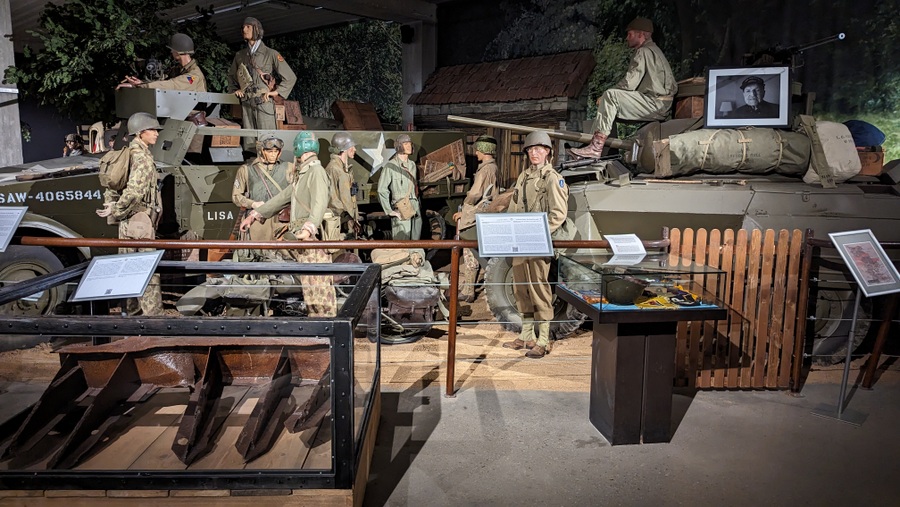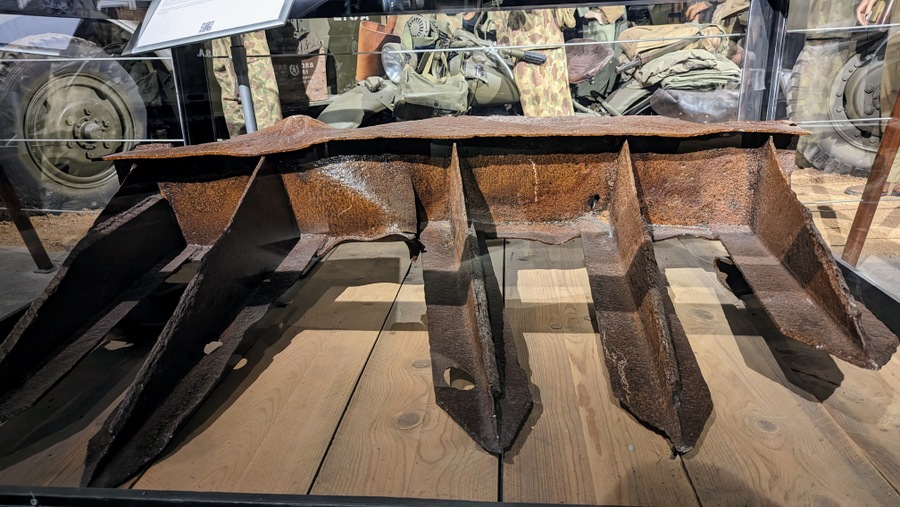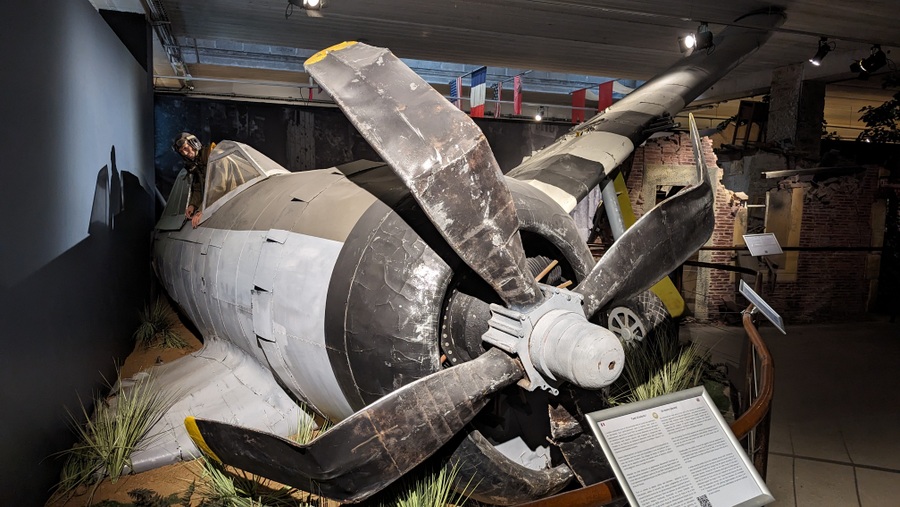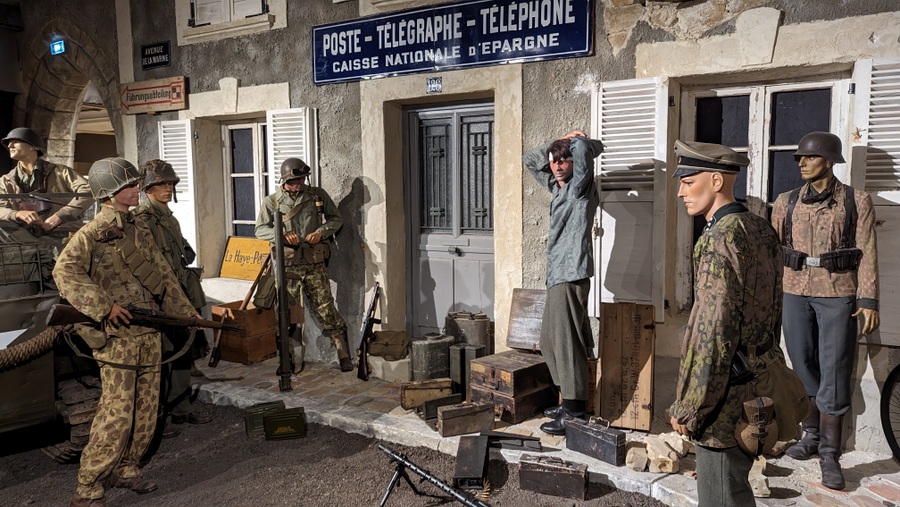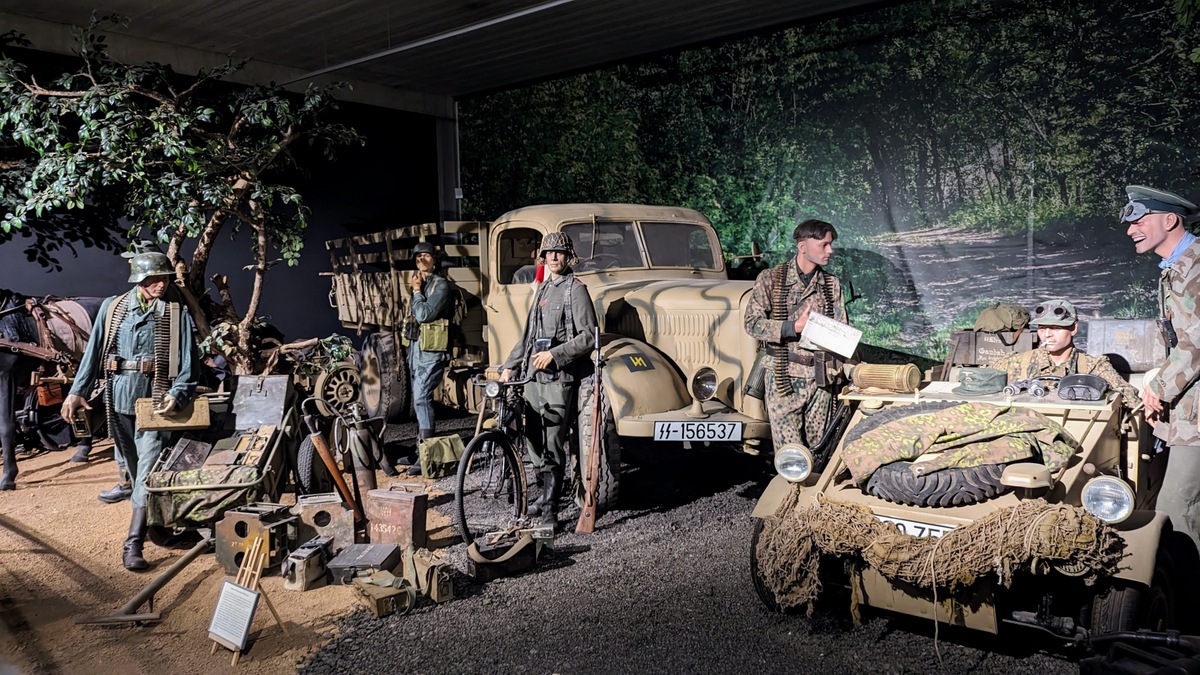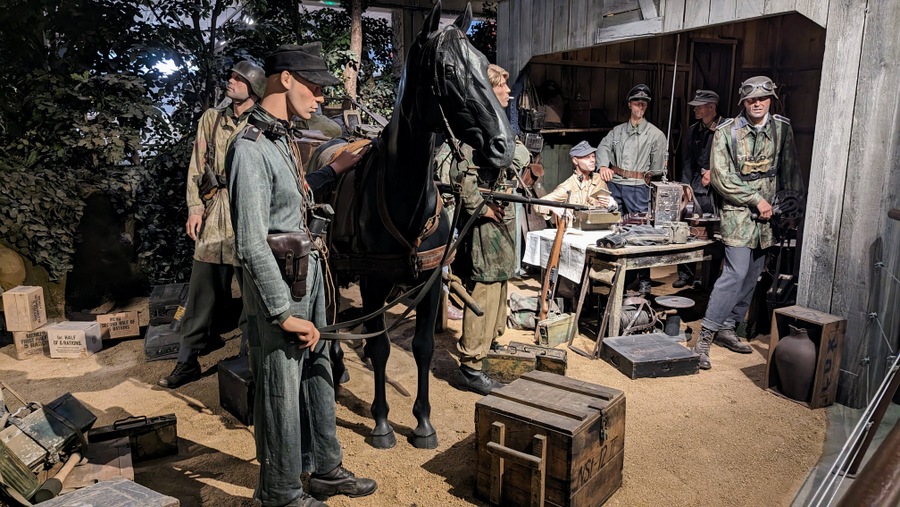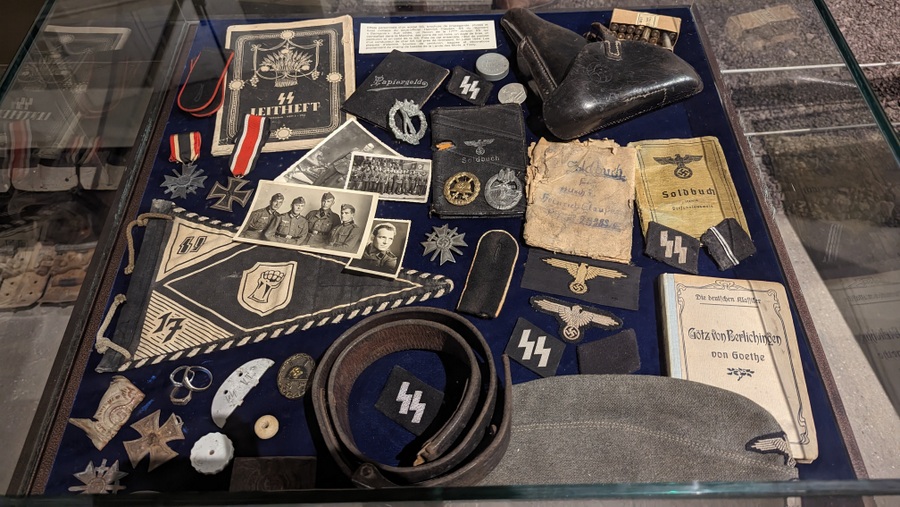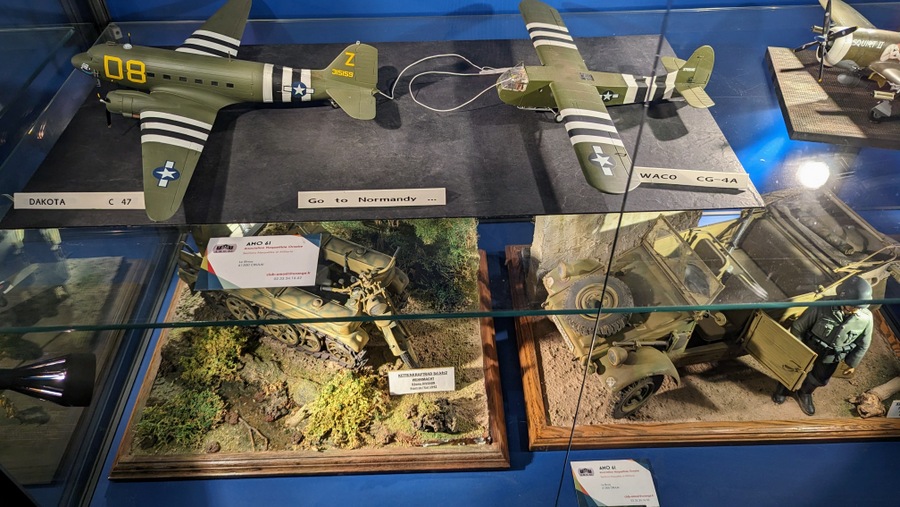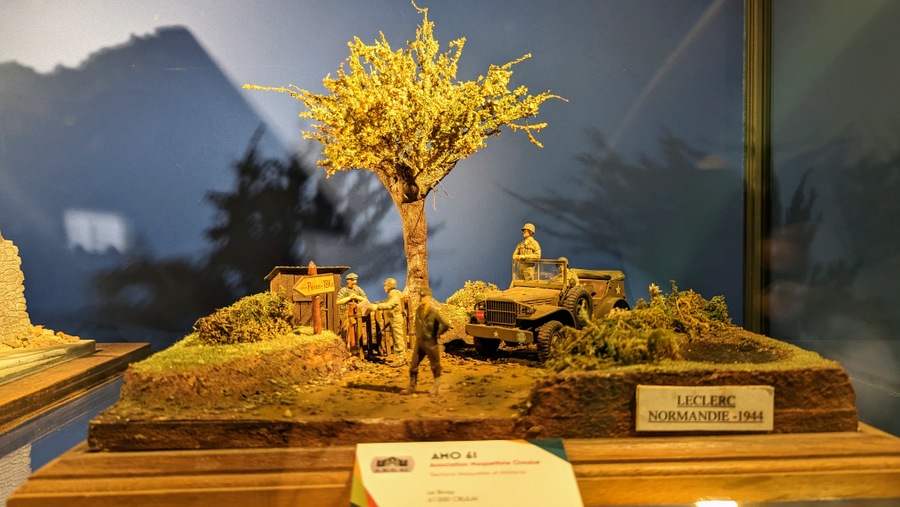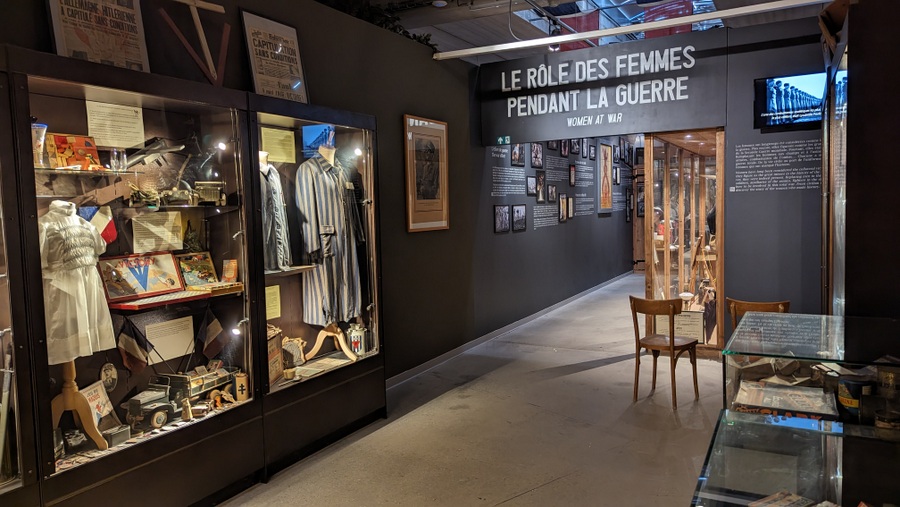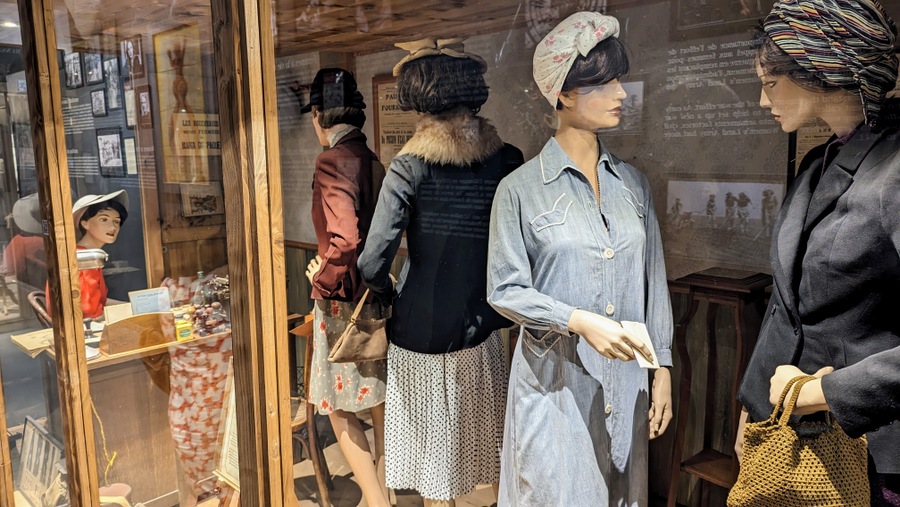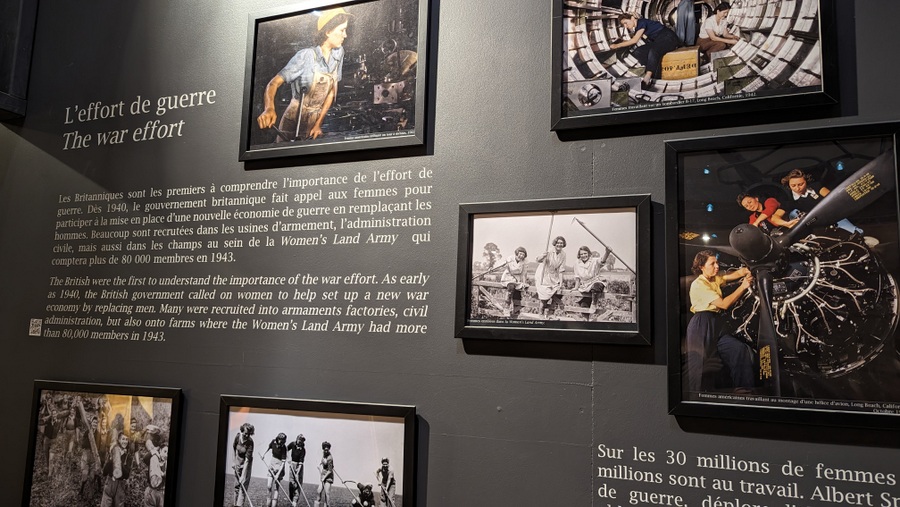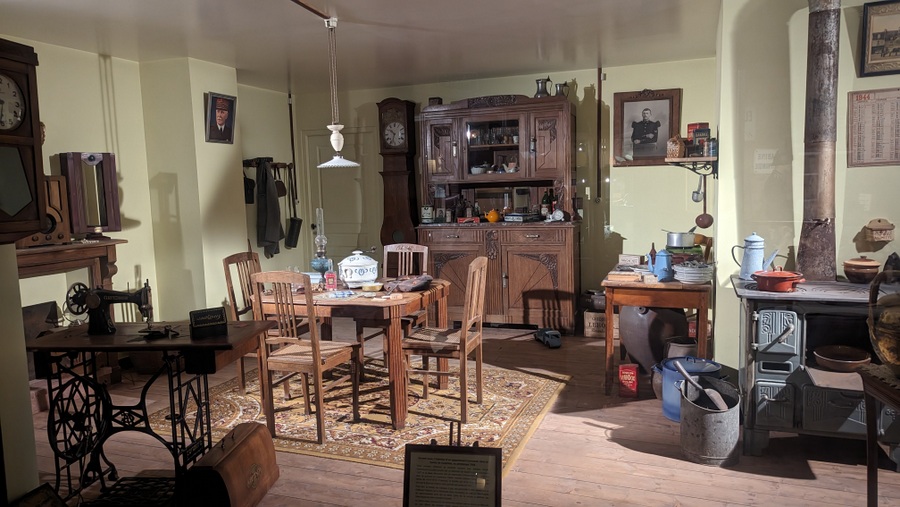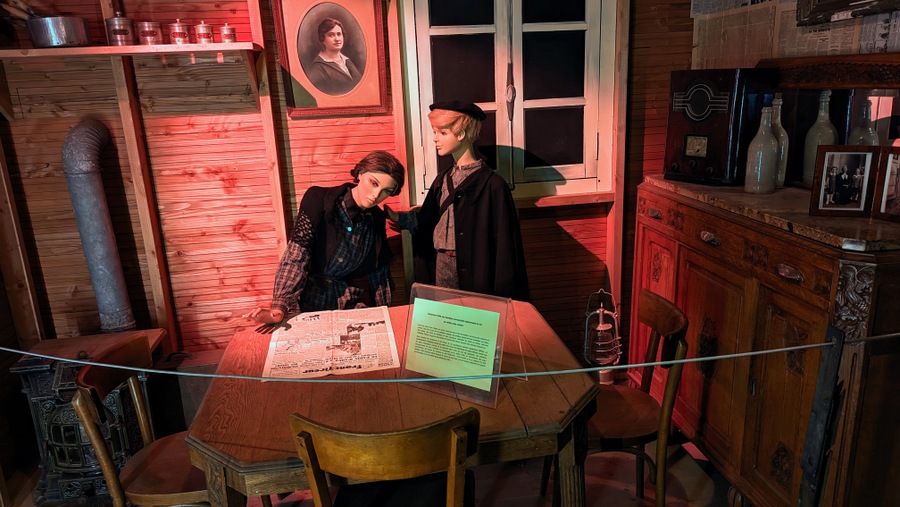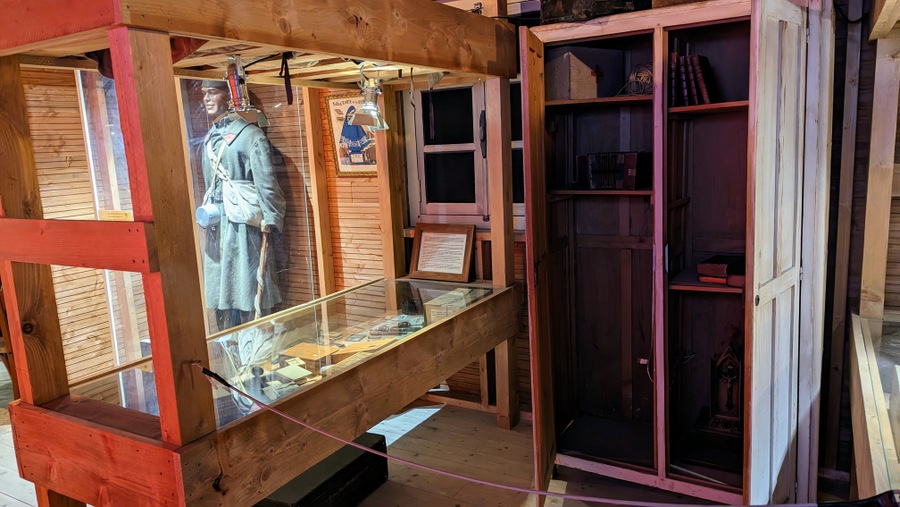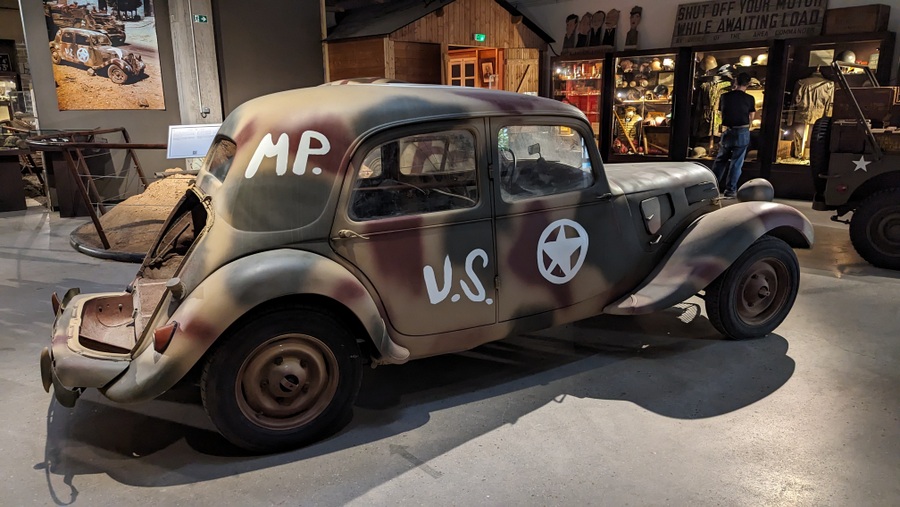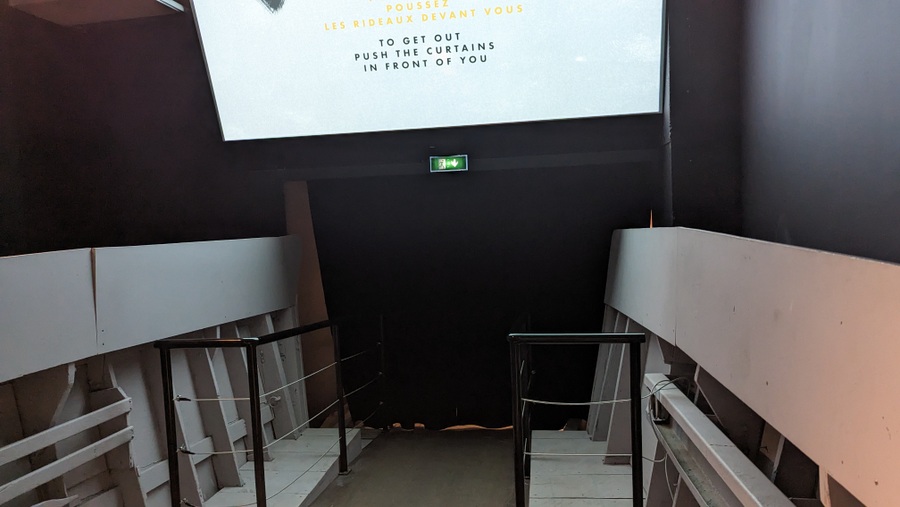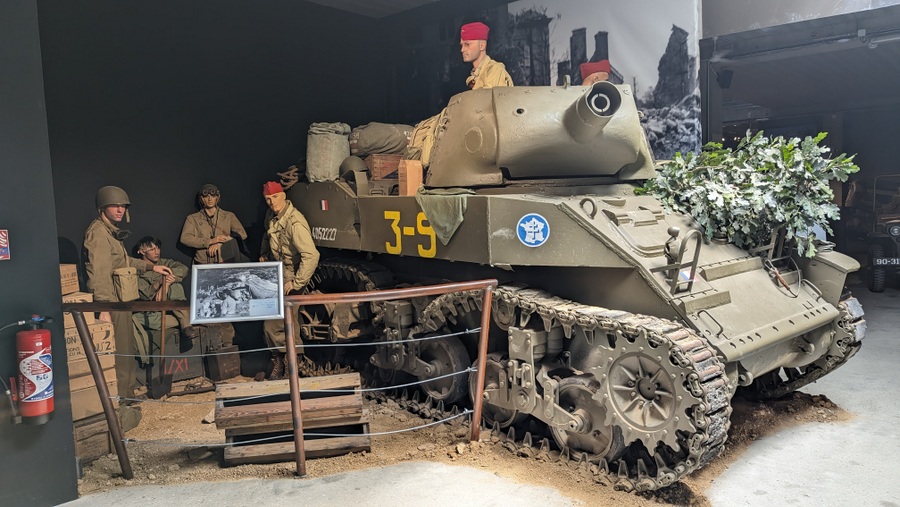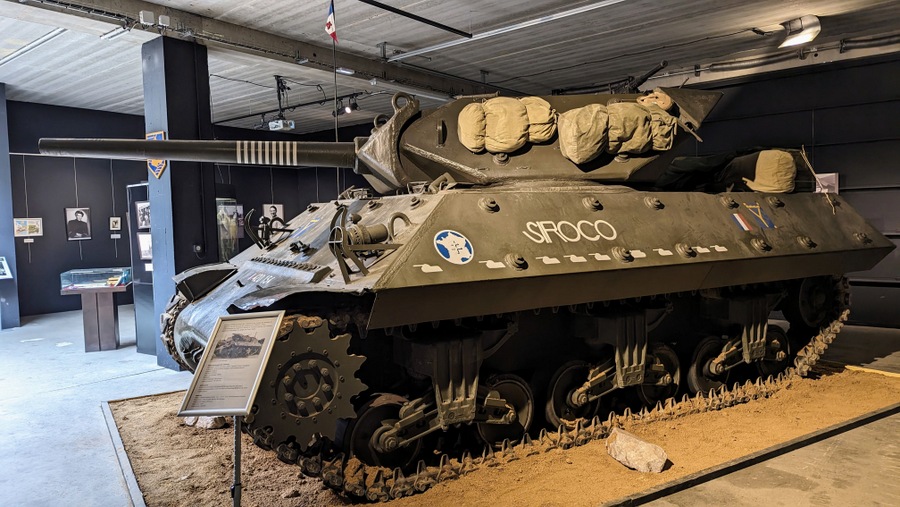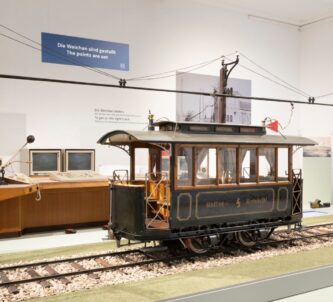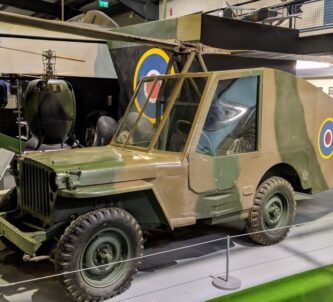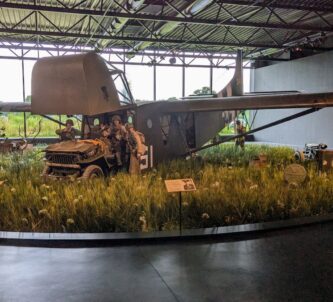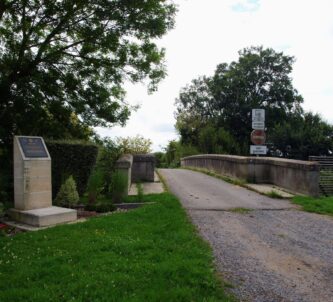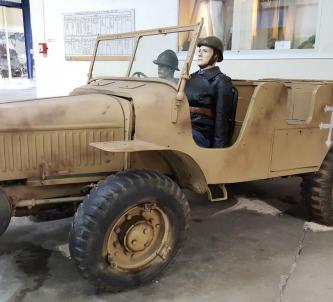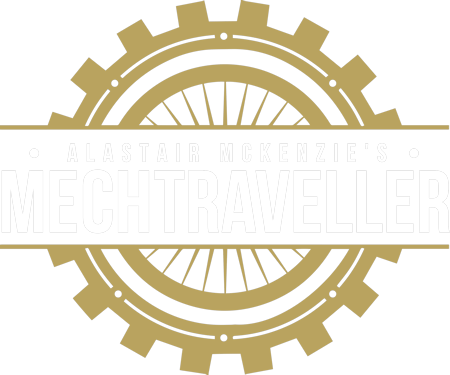The Normandy Victory Museum, sub-titled the Musée de la Bataille des Haies (Battle of the Hedgerows Museum) is quite a large museum (2,000 m²) and is definitely worth a visit, especially around lunchtime, because it also has a large brasserie restaurant split into a bistro and pizzeria.
In fact, the spacious site, wedged between the D974 and the N13 (Caen – Cherbourg) dual-carriageway, just east of the Cotentin marshes and the town of Carentan, comprises a number of different elements.
For a start, during the Battle of Normandy, this was the site of the American A-10 Advanced Landing Ground (ALG), a large temporary airfield built by the US 826th Engineer Battalion who began knocking down the numerous hedgerows and creating a 1,524 metre (5,000 ft) runway on 15 June 1944. It became operational just four days later when its first occupants, the 50th Fighter Group (P-47 Thunderbolts) landed. Later, in July it also became home to the 392nd Fighter Squadron (P-38 Lightnings).
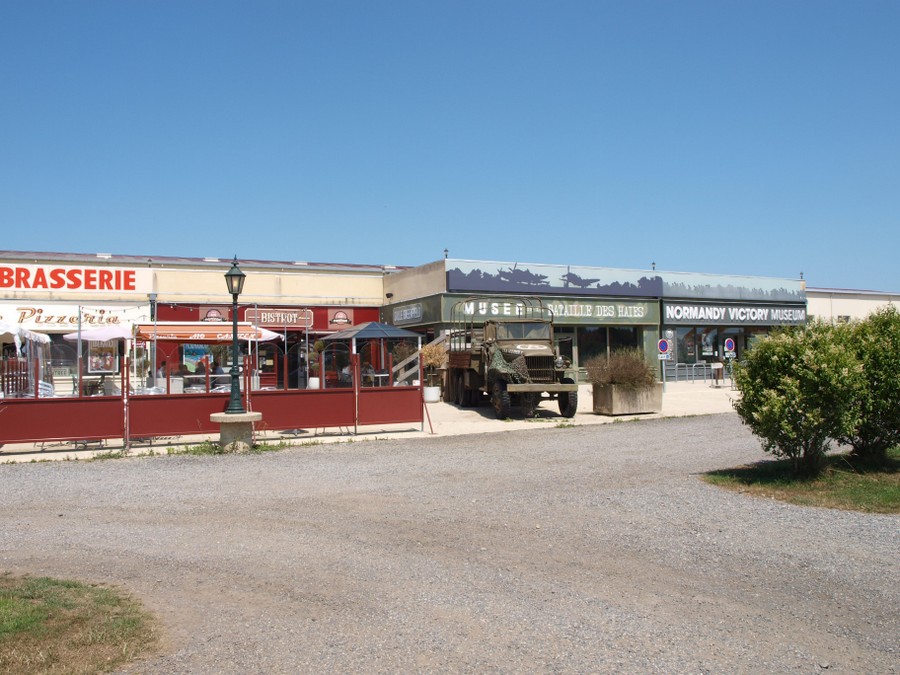
The museum was the brainchild of two military collectors, Patrick Fissot and Nicolas Bellée, who began planning in 2015 for a museum to house their collections. A year later they were joined by Christophe Beaussire, a passionate collector of military vehicles and a dealer in construction vehicles/machinery, who happened to own a large chunk of the former A-10 site where he had a huge modern building with workshops, offices, and, in the lower part of the split-level building, some large storage spaces that would be perfect for the museum, which they opened in 2017.
So, it is a dual-purpose site. On one side, facing the D974 are the serried ranks of diggers and plant machinery. On the other side is the museum, the brasserie, and a large tract of land which has the car park for the museum, space for campervans, and a number of artefacts like a Bailey bridge, and some WW2 vehicles, including, appropriately, some vintage bulldozers and scrapers that the engineer battalions would have used to scrape out runways and taxiways of the ALGs.
Inside the Normandy Victory Museum
Inside the museum, the collection is centred around 27 realistic dioramas, telling the story of the German occupation and then the ‘Battle of the Hedgerows’ as US forces fought their way inland and then swept south.
Signage
The physical signage around the museum is quite detailed and on most signs, is in both French and English. But the thing that stands out is their use of an AV app to additionally explain what you are looking at. That in itself is not particularly novel, but the system is really easy to use and has an unusually comprehensive amount of detail. You can download their app, but it doesn’t appear necessary because just scanning the QR codes brings up information on that location. Try it yourself here >>>
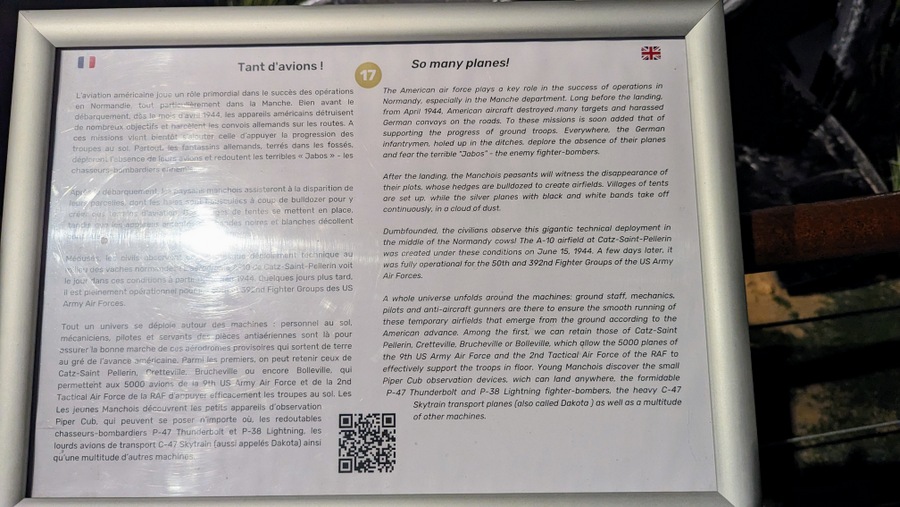
The app displays an extended summary of what is on the physical sign, and an audio version. Some locations/dioramas also display maps, photos and/or videos, and some allow you to drill down into other aspects of the scene in front of you, eg. more detail on the general mentioned, or the vehicle in the diorama. It’s free and available in six languages (FR, EN, NL, DE, IT, ES).
The dioramas
The 27 dioramas are the centrepieces of the museum. They are rich in detail, and provide a perfect platform for displaying many of the 15,000 artefacts the founders have amassed. These are a few of them.
There are plenty of small items and rare items that are displayed separately.
There are some galleries and areas that dwell on specific topics, such as the role of women, military & civilian, during the war. Women had to work hard under the privations and scrutiny of the occupation, to keep life for themselves and their families as normal as possible. With food and materials rationed they had to collaborate, share, make do and mend.
Often forgotten; the 20,000 French soldiers from Manche who were captured after the fall of France and spent up to five years as prisoners of war in Germany and Austria. Their families had remained home under German occupation until June 1944 when the invasion brought chaos, death and destruction to their towns and villages. As the front moved through, civilians emerged to find their homes damaged or destroyed and with winter coming, there was an urgent need to repair and restore shelter. Wooden barracks, built in Scandinavian countries, Switzerland, Canada and the USA, began to arrive in Normandy in early 1945.
Other areas include a small cinema and a temporary exhibition area.
Jean Gabin: ‘war is not cinema’ exhibition
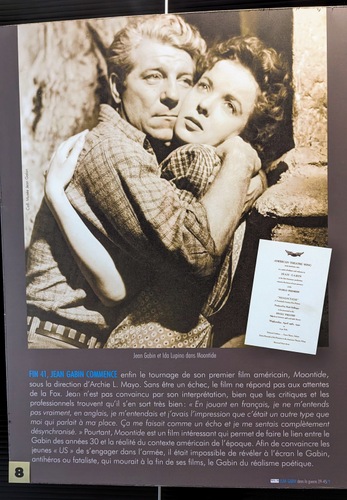
Ida Lupino in ‘Moontide’
Since April 2023 the temporary exhibition area has featured an exhibition concerning the life of the famous French movie star, Jean Gabin (real name: Jean-Alexis Moncorgé), who appeared in 98 movies during his 44-year film career between 1930 and 1974. Like other movie stars, such as Clarke Gable, Jimmy Stewart, and Charles Bronson, Jean Gabin also served with distinction in the military, although he was very discreet about it. Even his son knew little about this part of his father’s life.
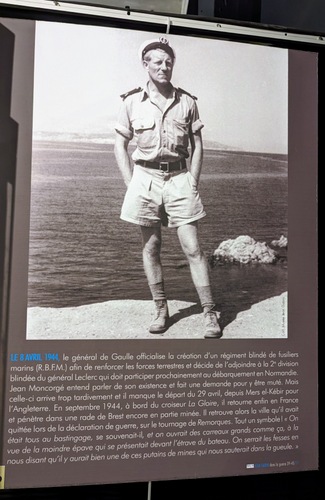
As a 19-year-old Moncorgé had done his military service, between acting jobs, with the Fusiliers Marins, a specialised navy defence force. Later, in January 1944, after many movie roles and a stint in Hollywood, he re-joined the Free French Fusiliers Marins and became an instructor in North Africa where he earned the Médaille militaire and a Croix de Guerre for his actions. In September 1944 he arrived in Brest. He soon became the commander of a TDM10 tank destroyer named Souffleur II in Gen. Leclerc’s 2nd armoured division and fought with the division all the way to Hitler’s retreat at Berchtesgaden. He was the oldest tank commander in the Free French Forces
As well as documents, photos and movie posters, the exhibition also features two armoured vehicles on loan from the French national tank museum in Saumur – both played a role in North Africa and the Liberation of Europe and featured in Jean Gabin’s military career.
The Jean Gabin exhibition was to have ended in November 2023, but it has been extended to 20 May 2024.
D-Day Normandy Posts
Museum Road Tours
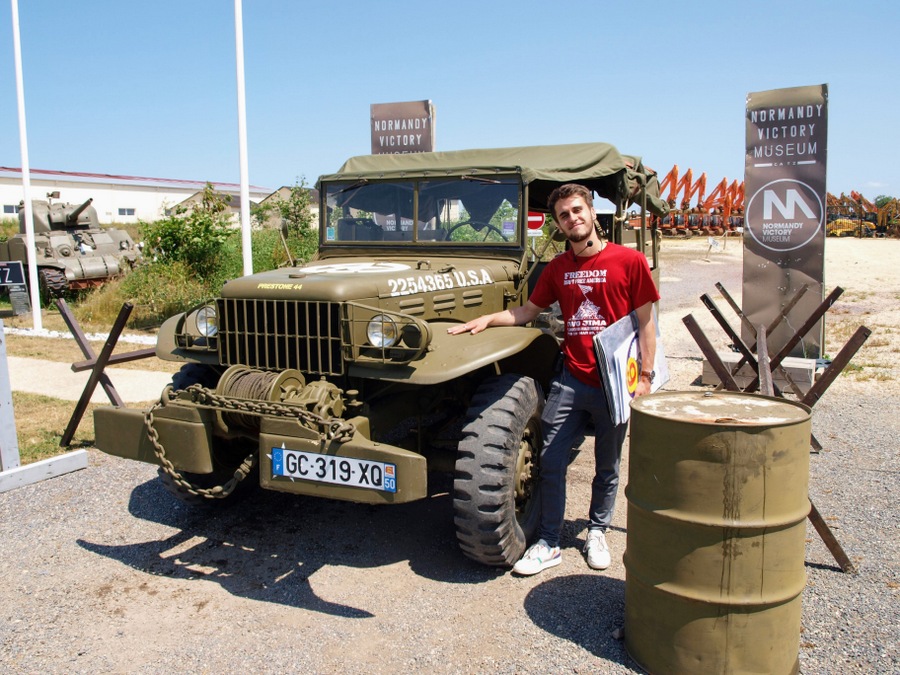
The museum also offers small group tours (max 7) during museum hours, in a WW2 vintage Dodge WC51 truck (designed as 4WD weapons and personnel carriers, they were nicknamed “Beeps” because they were Bigger than Jeeps). There are two standard tours:
- The ‘Short Tour’ (€ 24 per person) is a 40 min tour around the A10 Airfield, in the footsteps of the 9th Air Force.
- The ‘Long Tour’ (€ 44 per person)is a 75 min tour into the bocage and the area around Carentan.
This year they have added a second 75 min tour (€ 44 per person) focusing on the nearby events on D-Day itself.
Declaration: I was on a self-driving research trip supported by the Normandie and Calvados tourist offices. Museum entry was complementary.
Factbox
Website:
Normandy Victory Museum
Getting there: Normandy Victory Museum
Rue de la fourchette
Catz/St Pellerin
50500 Carentan les Marais
France
There is free parking (300 spaces) and motorhome/campervans are welcome.
Accessibility is easy. The whole museum is on one level. No stairs.
Dogs are welcome too, providing they behave!
Entry Price (2024):
| Adult 18+ | € 9.90 |
| Child under 6yrs | Free |
| Young person 7 – 17yrs | € 6.00 |
| Reduced rate (teachers, students, military personnel, reservists, etc) | € 7.00 |
| Family package (2 adults + 3/4 children) | € 30.00 |
This anniversary year there is also a special D-Day80 ticket that allows entry as often as you like during the 12 day period from 1 June to 12 June. Adults: € 18.00. Reduced rate € 14.00.
Tickets can be bought online or at reception.
Opening Hours (2024):
| Dates | Season | Hours |
|---|---|---|
| 10 Feb – 10 Mar | Low | Open all days, 10.00am to 5.30pm |
| 16 – 24 Mar | Low | Open weekends only, 10.00am to 5.30pm |
| 30 Mar – 17 May | Mid | Open all days, 10.00am to 6.30pm |
| 18 May – 25 Aug | High | Open all days, 9.30am to 7.00pm |
| 26 Aug – 29 Sep | Mid | Open all days, 10.00am to 6.30pm |
| 30 Sep – 3 Nov | Low | Open all days, 10.00am to 5.30pm |
| 9 Nov – 22 Dec | Low | Open weekends only, 10.00am to 5.30pm |
| 23 – 30 Dec | Low | Open all days except 24 & 25 Dec, 10.00am to 5.30pm |
